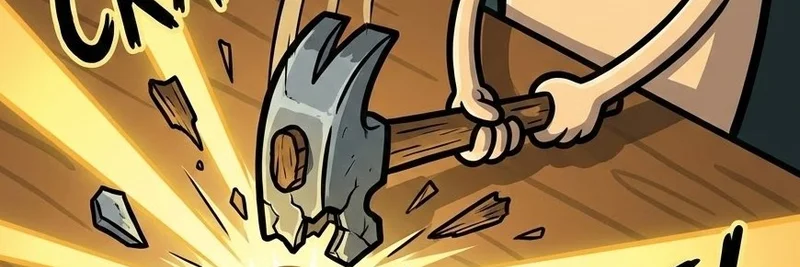In the fast-paced world of crypto, where meme tokens can skyrocket or crash overnight, security is everything. A recent tweet from MartyParty, a well-known crypto commentator and music producer, has sparked a conversation that's crucial for anyone dipping their toes into blockchain. He argues that 99% of what people call "hacks" are actually just thefts of passphrases – and it's time we all got smarter about it. Check out the original tweet for the full scoop.
MartyParty breaks it down simply: when someone steals your passphrase (that's the seed phrase for your wallet, folks), it's not a high-tech hack worthy of a Hollywood movie. It's more like leaving your house keys under the doormat and then acting surprised when your stuff goes missing. Real hacks involve fancy stuff like exploiting bugs in software code, sneaking past security walls with malware, or using unknown vulnerabilities called zero-day attacks. But stolen passphrases? Those usually come from phishing scams (where bad actors trick you into giving up your info), reusing weak passwords across sites, or falling for data breaches elsewhere.
Why does this distinction matter? As MartyParty points out, crying "hack" every time dilutes the term and makes the whole crypto industry look vulnerable. In 2025, with meme tokens like those inspired by viral trends gaining massive traction, misinformation can scare off new users. Meme Insider is all about building a solid knowledge base for blockchain practitioners, so let's clear this up: most "hacks" are on you, the user. It's harsh, but true. Respect every click, as he says – that random airdrop link or suspicious DM could be a trap.
The community chimed in with solid advice in the replies. One user, @firehustle_net, reminded everyone to revoke access on swap platforms after use and avoid sketchy contracts. That's gold for meme token traders who often jump between DEXs like Uniswap or Raydium. Another, @CyptoArtLab, compared not using a hardware wallet to leaving your Lamborghini unlocked – spot on, especially when holding volatile assets that could pump 10x in a day.
For meme token enthusiasts, this hits home because the space is rife with rugs, pumps, and dumps. Losing your passphrase could mean waving goodbye to that moonshot position in a dog-themed coin. To enhance your security game:
- Use hardware wallets: Devices like Ledger or Trezor keep your passphrases offline, away from online threats.
- Enable multi-factor authentication (MFA): But skip SMS-based ones – opt for app-based like Google Authenticator.
- Never share your seed phrase: Not even with "support" from a project. Legit teams won't ask.
- Regularly check and revoke permissions: Tools like Revoke.cash let you cut off approvals to shady contracts.
- Educate yourself on phishing: If it seems too good to be true (free NFTs, anyone?), it probably is.
By framing these incidents as robberies rather than hacks, we empower users to take responsibility and level up their opsec (that's operational security, for the newbies). At Meme Insider, we're committed to helping you navigate the wild world of meme tokens with the latest news and tips. Stay vigilant, and let's make 2025 the year crypto gets safer for everyone. What's your top security tip? Drop it in the comments below!

